TV Musicals. Go Fix Yourself!
The Pros/Cons of Televised Theatre & How to Improve the Medium
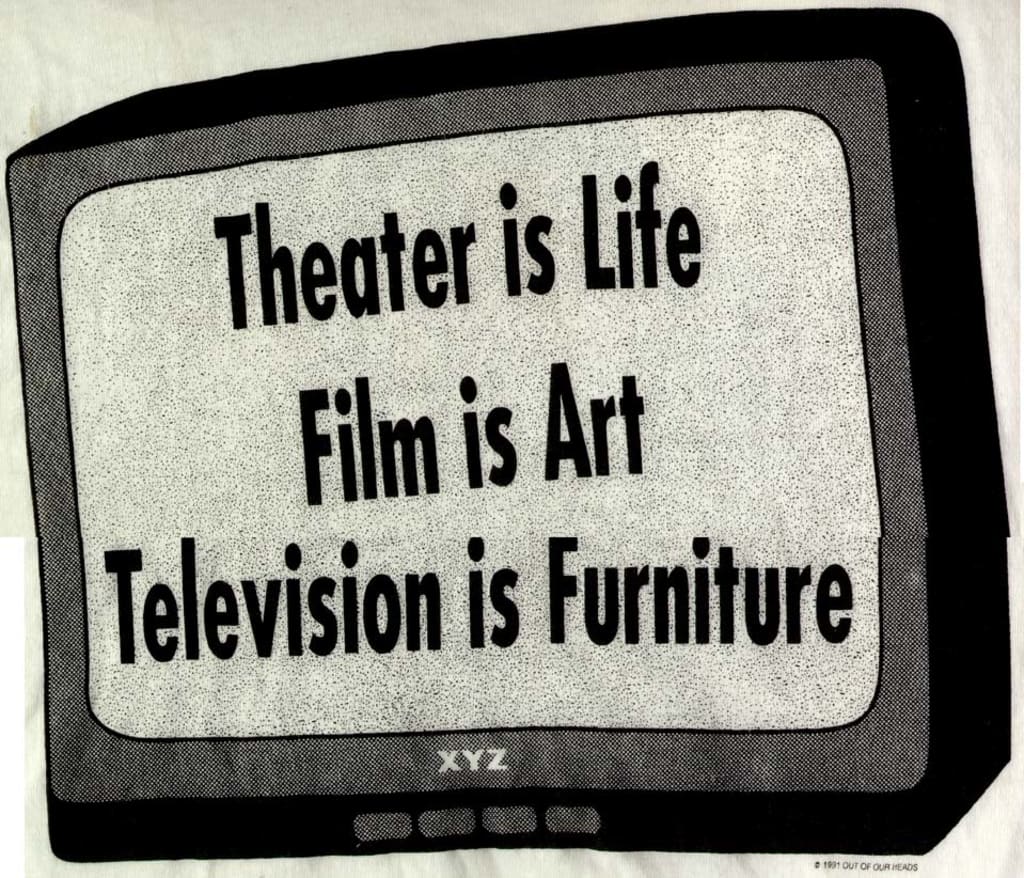
(Honrable mentions to Drew Gould, Khyel Roberson, Mike Reinhart, Richie Berner, Amanda Biro, Daniel Rollock, Stephanie Johnson, Reilly Crouse, Isaiah Moore, Maddie Davies, Nole Beran, Paige Scott, Lindsay Vallance & Beth Maio. Thank you so much for contributing your honest thoughts thowards the cration of this work.)
To paraphrase the acting teacher & dramaturg, Lee Strasberg, in an interview, the threatre is the only form of art which is closest to the human condition. In comparison to other forms of art; sound, music, words on a page, paint on a canvas, they showcase life, yet they are halted by a physical barrier before fully reaching their audience; be it the physical paper on which poetic words or composed music is written or even the painted depictions stuck permanently on the canvas. In the world of the theatre, "the performing arts", the thespian is the agent for which art is created by the very same means that life is created. Furthermore, that physical barrier between the world of the stage and the world of the audience doesn't exist. This allows the reaction of the viewer to become more than a reaction. It becomes a once in a lifetime experience, which regardless of how many times that viewer sees the show again in the future, that experience can never be fully replicated.
This respect for the live stage musical has since evolved over the past several decades, either wonderfully or terribly given the perspective, with the advent of mass marketing live theatre via the home television screen. Certainly the phenomena (in the United States) is nothing new; rooting as far back as the "Golden Age of Television" between the late 1940's & the early 1970's, with individual programs like The Ed Sullivan Show & Producer's Showcase, Hallmark Hall of Fame, as well as established television networks delivering musical theatre to the living rooms of nuclear families across America.
However, much has changed both technologically and in terms of how show business operates in America since this "golden age". Nowadays, audiences prefer to see their art & culture via their computer or smartphone over live television and even the live stage. Going even further to binge watch programs from streaming services like Netflix, Amazon Prime, Apple TV, Hulu, Disney+, HBO Now, Peacock, & Broadway HD (just to name a select few). This is primarily due to increased convenience for the viewer. Why would anyone pay big money to see a one-time live show in a theatre, when for a montlhy subscription, watch them from the screen of a phone that can be crried around from the comfort of a pocket? For many people in the lower income bracket, this conveneince is a positive element. For more often than not, these people don't have time to travel to theatres to see shows & often don't have the money for admittance, concessions, and optimal seating. With a phone and a video, the freedom to see the performance and control it (replay, rewind, fast forward, etc.) is all in the power of one's finger pressed on against the screen. Yet, this only further creates the divide between this particular audience and the more traditional audiences who have the money to spend on live show tickets and good seats. As a method of equilibrium, it is the televised musical which has attempted to bridge the gap. Yet, in the past decade, this effort on behalf of big entertainment which has begun to create flaws in the bridge. So much so, that between 2010 & 2020 most of what is left of this antiquated method of showcasing the arts to the masses has been increasingly recieving mixed to negative reviews (by both audiences & critics) and have even lost enough money to cause netowrks to cancell future projects.
Which leads to the main topic of conversation in this piece. Why TV musicals are struggling & how they can be improved. Personally, I have seen a plethora of these programs. Some of them are extremly underated & were executed extremely well. Meanwhile, there are others which were so horrible that the experience of watching them was equal to eating a Hot Pocket. At first, it looks visually appealing. Though, once you eat away at it, the parts that are excruciatingly hot & loud, followed by parts which are bitterly cold & dry will render your tongue into a mess of burns and chills.
Woe unto thee oh stage & studio! You have sinned great sins at the sight of the people. Sent before you, this day, are the laws of passion & quality in art. Those who shall not live by them shall suffer under them!
1) Thou Shall Respect the Power of Cinematography.
Any veteran of film school will tell you that the camera is more than just a tool. It is the metaphorical eye for which the viewer witnesses the action on-screen and can determine how the viewer reacts in certain scenes as the story unfolds before you. Cinema legends from Sergei Eisentien, to Alfred Hitchcock, to Stanley Kubrick, to David Lynch, to Christopher Nolan, to Jordan Peele have all exercised the true variety of how to use the camera as one of the most important methods of storytelling besides physical staging & acting. In the case of these televised musicals the staging and acting is more inclined to take precedence over cienmatography; with the nutshell philopsphy being that it's simply a live production being objectivly filmed for a distant home audience (wether or not there is a live audience in the performance space, like with Rent LIVE & Jesus Christ Superstar Live in Concert, or if the staging is done entirely from studio lots without any on-screen audience at all; such as Grease LIVE & A Christmas Story LIVE).
However, because there is often an on-set tendnency to concentrate more effort on acting & staging, over the cinematography, it leads to numerous awkward shots which are reflected on-screen. Including several cringy close-ups of individual actors that once you see them, they become permenantly branded into your subconscious.
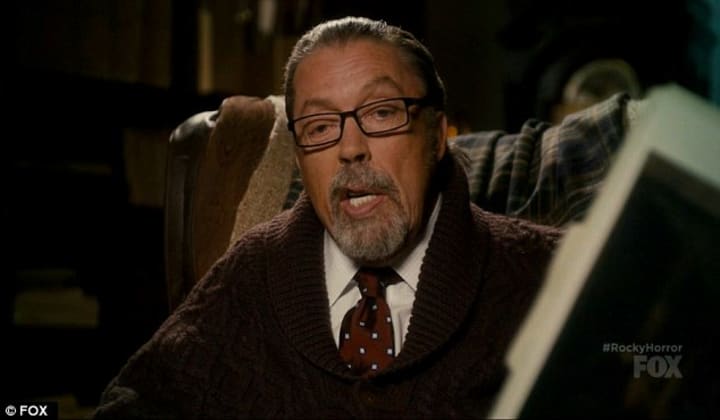
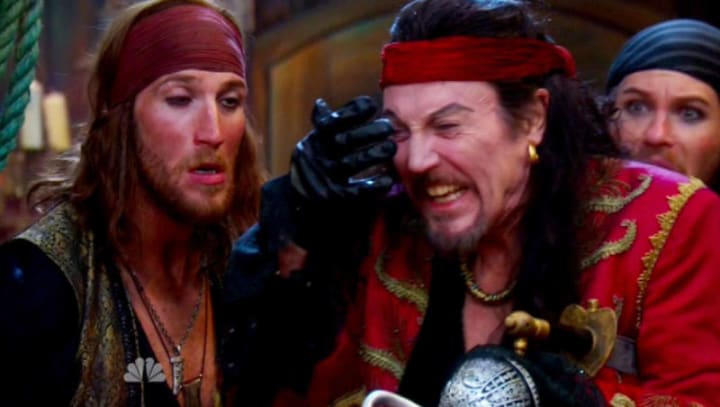
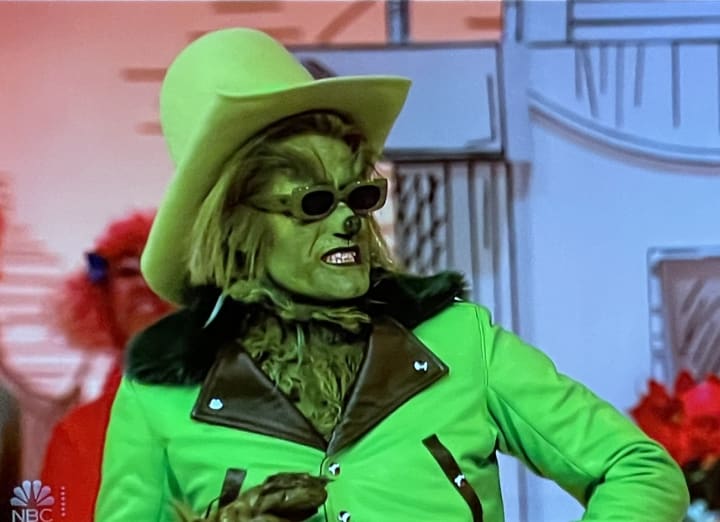
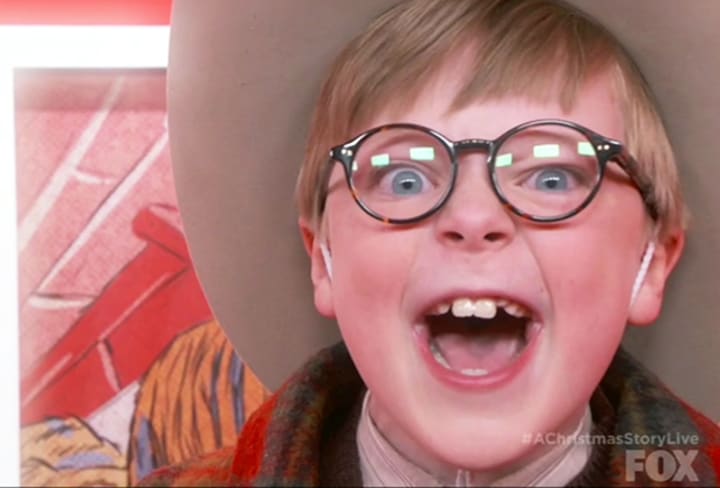
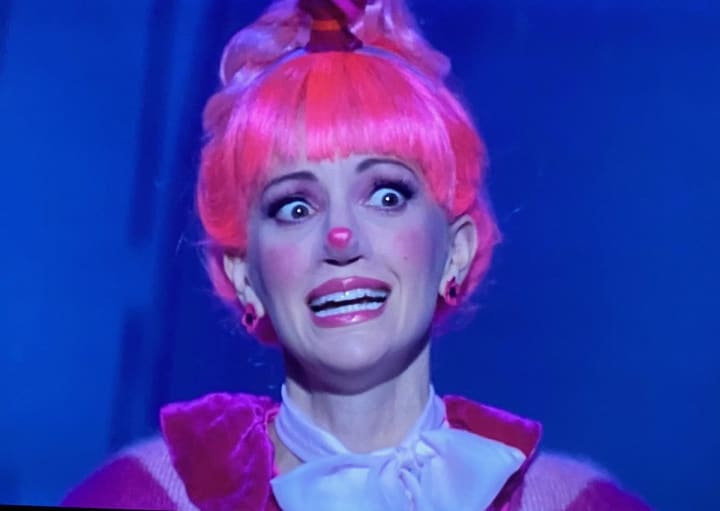
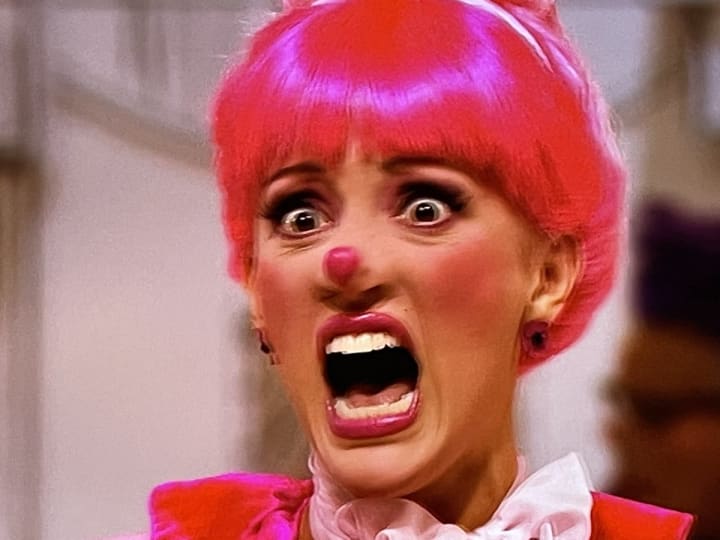
Such difficulties with the camera work can be easily resolved if such unequal concentration is better distributed for the enhancement of the project, and more professional cinematographers (ones who actually know how to illustrate a story via the camera) fall into these projects. Which is where I must compliment the direction behind 2022's Beauty & the Beast: A 30th Celebration; with the use of long take tracking shots to enhance the viewing experince ang allow the viewer a first person perspective into the story being told through song & dance.
Even the shows executive producer, Raj Kapoor, described the camera work as being more cinematic in contrast to prior shows, and didn't want the at-home audience to feel like some alientated spectator. Rather, to feel as if they were fully immersed in the world of the stage & story. It's a creative mindset like that which serves a step in the right direction.
2) Thou Shall Not Plague Your Show with Out of Place Celebrity Talent.
Depending on the studio, this particular issue in the casting department tends to fall in either one of two categories.
CATEGORY A) Career musicians who don't know the first thing about acting.
CATEGORY B) Veteran, but passé, actors who can barely carry a tune.
Both the these categories are mainly fueled by an effort to gain better appeal from home/family audiences by grabbing celebrity names and giving them star billing. Though, both of these categories do share one thing in common. The people put in star billing contribute to the destruction of the suspension of diselief (some thing which will be elborated upon later). From the viewer's perspective, the flaws of the "stars" shown on screen, prevent the viewer from seeing the celebrity as their appropriate character, and instead, seeing them as just the celebrity being the celebrity while wearing a costume.
This certainly isn't the case with the supporting casts of these shows; or even shows which were made under different studios besides NBC. Christian Borle brought 110% effort in both Sound of Music LIVE & Peter Pan LIVE; along with Allison Williams in Peter Pan LIVE. John Stamos in The Little Mermaid LIVE & Queen Latifah in The Wiz LIVE were solid performances. Not anything groundbreaking, but still solid. Vanessa Hudgens in both Grease LIVE & Rent LIVE put a smile on my face. Adam Lambert treated his cameo role as Eddie in The Rocky Horror Picture Show: Let's Do the Time Warp Again just as dynamically as his rock tours with Queen. Even with the most recent NBC endeavor Dr. Suess' The Grinch Musical the performances of Denis O'Hare as Old Max & Booboo Stewart as Young Max were comically fun to watch and were able to keep things floating.
Sadly though, none of these perfomances were strong enough to keep their shows fully above water. Which is why the stronger solution would be that if the major studios are going to continue making live tv msucials with the method of casting celebrities for star billing & wider appeal, I reccomemnd looking just a little bit deeper for names which can both sing well & play the appropriate part without their performances coming off as superficial. It's like the old adage goes; "If you're worried about geting a rotten apple, don't pick it up from the barrel. Get it off the tree."
3) Thou Shall Uphold the Suspension of Disbelief.
One of the basic rules of theatre is understanding the term "suspension of disbelief". A term which goes back to the teachings of Russian actor & theatre teacher, Konstantin Stanislavsky & the Moscow Art Theatre, it is what gives the actor sincerity & legitiamacy. When in the course of a performance, if the actors lack the ability to suspend the audience's disbelief, the audience is not emotionally attached or engaged with the events occuring in front of them. They see no reason to belive that the fantastical world shown before them is "just a set" or that the story shown before them is at all real. The experience part of what makes theatre what it is, is either weakened or (worst case scenario) completley lost. However, this responsibility is not solely the actor's responsibility. It is the responsibility of both the cast & crew to suspend the audience's disbelief in order to keep viewers watching and entertained. This effort is by no means an easy one. From something eerily obvious as how fake and artifical set pieces can be, to little aspects, like a modern tattoo on an actor while performing in a period play.
These tv musicals suffer often from these intangibles which easily break the suspension of disbelief. Granted, in this business Murphy's Law (anything that can go wrong will go wrong) is an expected reality. However, that does not make these mistakes by the hands of the cast & crew any less excusable. Simple blunders which can be easily replaced by either reworking the set, or a change of costume. I fail to believe there isn't enough money budget wise to garauntee that these mistakes were unable to be fiscally covered.
4) Thou Shall Not Abuse the Breaking of the Fourth Wall.
Now, in contrast to Stansilavsky's teaching of suspending disbelief, the German Playwright Bertolt Brecht advocated the theatre of politics, where the narrative of the play takes more precedence over plot. One way of executing this is by breaking the fourth wall or exposing the technology of the theater to the audience for the sake of amusement, allowing the audience to become part of the show in the process. In the course of the tv musicals made by NBC, FOX, ABC, & PBS over the past decade, this phenomena only happens rarely, but when it does happen it's never forgotten. Sometimes it's justifiable; like if a character serves as the show's narrator (Matthew Broderick as Old Ralphie in A Christmas Story LIVE, Tim Curry as himself in The Rocky Horror Picture Show: Let's Do the Time Warp Again, & Denis O'Hare as Old Max in Dr Seuss' The Grinch Musical) or even when Allison Williams as the Boy Who Wouldn't Grow Up pleads with the home audience to clap & cry out that they believe in fairies to heal Tinkerbell in Peter Pan LIVE.
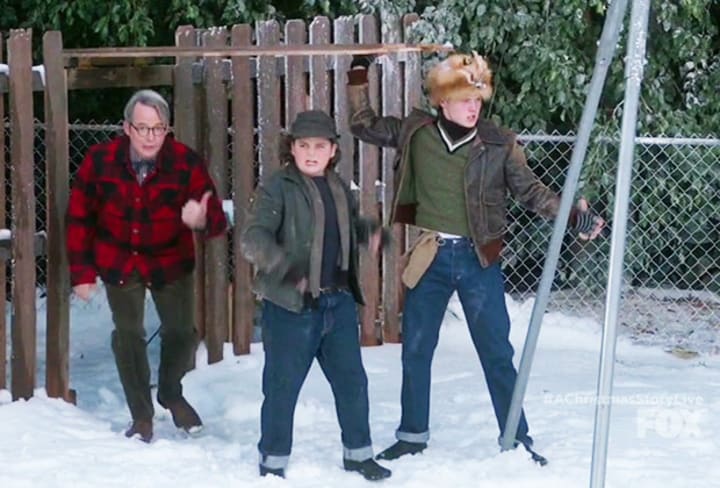
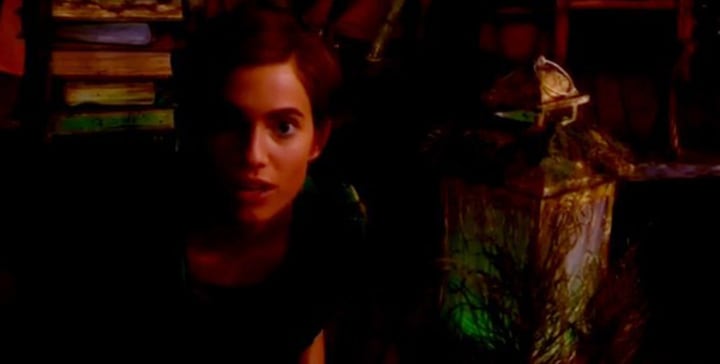
However, other times, it's stright up abused (Matthew Morrison's covered in green hair & makeup insulting the viewer's couch or a characer's solo being sung directly at the camera).
The point is. If one is going to break the fourth wall for the sake of the show, do it right. Otherwise, carry on as rehearsed & pretend that the cameras don't exist.
5) Thou Shall Not Value Spectacle over Substance.
Theatre is not a circus & a circus is not theatre. Circuses rely on visual stunt & specatcle in order to visually impress the crowds. Theatre uses spectacle as a tool to impress the crowds, but is by no means the primary component. Theatre is first and foremorst the art of storytelling. When one values the element of spectacle over storytelling, the overall product comes off as gaudy & fancifully shallow. Like George Lucas' Star Wars prequel movies or anything with Michael Bay's name on it.
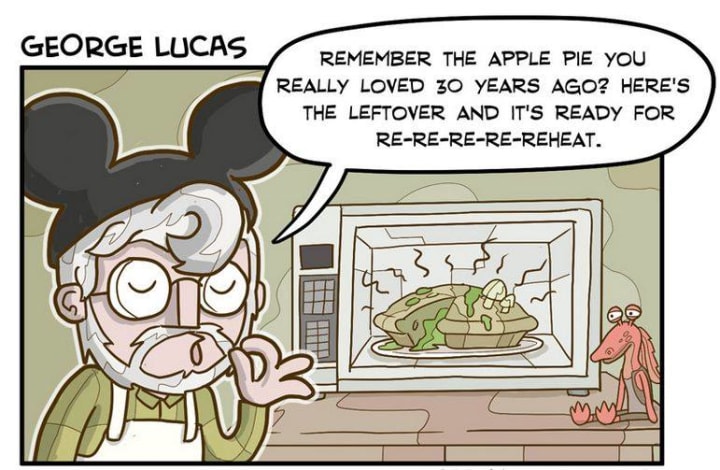
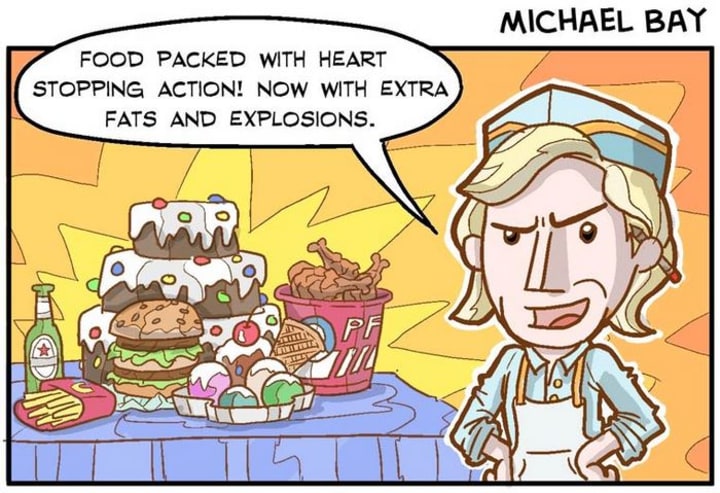
With modern tv musicals this can often be the case. Be it the flying rigs in Peter Pan LIVE, the heavily coordinated dances in Hairspray LIVE, or the extravagant use of a packed crowd of cheering fans used for Jesus Christ Superstar Live in Concert. Just because they're there, doesn't mean they alone make the show work. You need something for the spectacular elements to highlight. It's just common sense. If what you're highlighting isn't as good as the elements themselves, take that as a sign to go back to the drawing board.
6) Thou Shall Contemplate the Option of Pre-Recording.
This one in particular is specifically being brought up in the wake of Dr. Seuss' The Grinch Musical and how NBC chose to execute the project in the midst of the COVID-19 pandemic. Rather than doing the show before a live audience or on a studio lot, the show was pre-recorded in a UK theatre with no audience. Just the lights, set, cast, crew, and cameras. Ideally, there are certain advantages to doing a televised musical this way. It's easier to fix potential mistakes, and for a Dr. Seuss show, the simplistic creativity of the set pieces and how they transition from one to another is easier to coodrinate; with no need to film the show chronologically.
Yet, with such benefits of pre-recording come with drawbacks. In this case, being that the team only had about 48 hours to film the Grinch show & edit the footage for broadcasting. With that kind of time crunch there was virtually no room to go back and polish things (maybe one extra fix-up, here or there, in case the original take was really bad). So the production was rushed to a great degree. Perhaps if there was more time alloted to perfect things, a much better product would've been released & much better recieved.
More recently, with 2022's Beauty & the Beast: A 30th Celebration, I was actually quite surprised to learn that the live action segments were filmed at Disney's studio lot in Burbank, California; one month prior to broadcasting. A shooting schedule that's much better than a measly 48 hours. Hopefully, it will set a precedent for future projects to be recorded this way, instead of just winging it in the course of the moment (with millions of people watching).
7) Thou Shall Exercise Better Broadcast Timing.
One of the common denominators these tv musicals do have in common, regardless of network affiliation, is the timing which they are publically broadcasted. Over the course of the past decade, almost every live tv musical has been broadcast in December, on a weekday, and during the evening hours. Since, you know, that's not at all inconvenient for working class families. It's not like people have to get up in the morning to make breakfast, drop the kids off at school, haul into work for an 8-10 hour shift, pick up the kid(s) after 7 hours of school, come back home, get dinner ready, help the kid(s) with their homework, do chores around the house and get things ready for tommorow. Who would'nt want to spend a Wednesday night, staring away at the TV for three hours (plus commercials), watching The Little Mermaid LIVE? Wouldn't that be fun?!
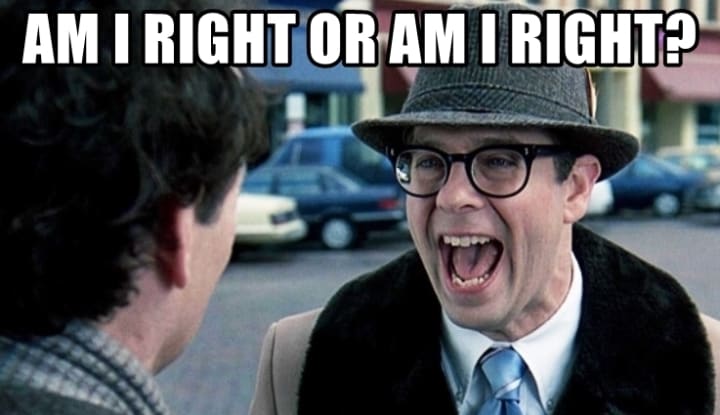
Meme aside, my question to the netowrks is a simple one? Is it really that difficult to cut the commercials to a minimum & broadcast a musical show on a weekend? Friday night at the earliest? Seems pretty convenient to me. It'd be a lot easier for the family demographic. The kid(s) stay home the day after, and they'll be more inclined to watch, even if the parents have other priorities. I was a kid once. I should know.
8) Thou Shall Ad-Lib Only When Necessary & with Caution.
Going back to Murphy's Law, the ancient adage reminds the thespian that accidents will happen from time to time. In the course of those moments everything can be fair game in terms of how to react. Ad-libing can either be one of the greatest ways to fix a mistake made by accident in the course of a show or one of the most abused methods to undermine a show because of one person (or multiple people) wanting to ham it up for themselves.
The most infamous of these moments was in Peter Pan LIVE where Christopher Walken forgot his lines in the middle of the live broadcast. The line he forgot was "The game is up!". Rather than saying something similar to it to keep the ball rolling, he just sat there, for a good 20 seconds, desperatley trying to remember the line. All the while undermining his character performance and forcing the other actors around him to cover his ass and improvise things until Walken jogs his memory.
The solution to this is simple. LEARN YOUR LINES! It's not rocket science. If you learn your lines, things like this won't happen.
9) Thou Shall Enhance the Mise-en-scène.
Another theatre term that some people may not know very well is a french term for the arrangement of scenery & stage properties in a play, called mise-en-scène. This term also translates to film, but in the case of television musicals, this element is a factor which is done either wonderfully or horribly. An example of mise-en-scène done wonderfully is in NBC's The Wiz LIVE, with everything from the set design to the costuming; taking a 1970's Motown-styled classic (that hasn't necessarily aged well, visually) & facelifting it for a more modern area & contemporary audience.
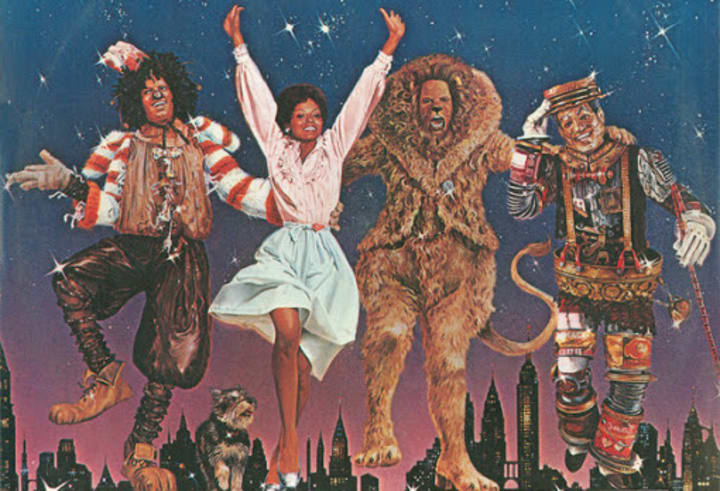
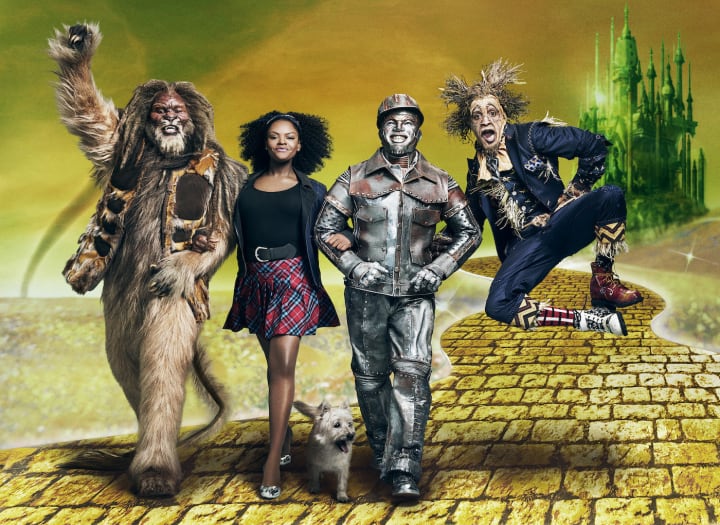
Sadly, though, I can't say that this school of thought has worked with other projects; especially with with period shows like The Sound of Music LIVE. The mise-en-scène in the Carrie Underwood version doesn't do anything to artistically differentiate itself with the Julie Andrews version. In fact around the same time that The Sound of Music LIVE was released in the U.S., the British network ITV decided to do their own live version of the same musical exclusivly for British television. The difference, in terms of the mise-en-scène, is like the difference between a medium rare steak from a 5 star restraunt and a frozen pizza from a gas station.
My references here, come to the point that when adapting an intellectual property to a new medium & a new audience, it's well advised to enhance the mise-en-scène in order to establish your project (your version, really) as something new, invigorating, and energetic. Otherwise your product will come off as a boring and dull copy, once the spectacle has come and gone.
10) Thou Shall NEVER Resort to Petty Attempts at Relevancy.
From pop culture jokes & gross-out humor.
To the on-screen hashtags.

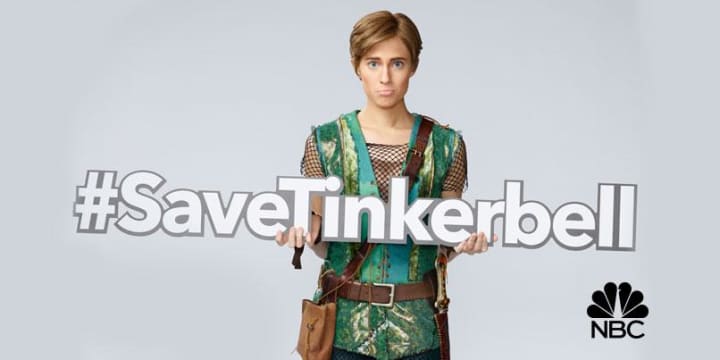
To the absolutley pointless & nonsensical filler.
These are the straws that continue to break the camel's back, again & again. They serve virtually no purpose but to top off the already excessive use of spectacle; like 3 or 4 little pieces of carmelized onion atop a sirloin steak that's completley coated in two thick layers of steak sauce & barbeque sauce. If the flavor of the steak is already compromised as it is, what's the point of even adding the onions? Just to try and make the dish look good at first glance before you to eat it. THESE HAVE GOT TO GO!
By having gross out humor, you don't make shows more mature. You make them more embarrasing. By throwing in pop culture references & hashtags, you don't make them more modern. You make them more dated. Last, but not least, by adding meaningless filler, you don't make them more memorable. You only show how much you don't care about the respected source material that's already fine as it is. I'm by no means saying the original stage shows are masterpieces (far from it), but when the source material got it right. They got it right; because all that's needed to make good art is a creative individual who shows how they see things their own unique way (from Rodgers & Hammerstein, to J. M. Barrie, to Frank L. Baum, to Jean Sheppard, to Andrew Lloyd Webber & Tim Rice, to Dr. Seuss). No amount of hashtags, fourth wall breaks, or celebrity tie-ins can replace that necessity.
Only from these edicts shall American televised theatre begin to climb out of the hole of shame and begin to travel down a path of success & dignity. If these edicts are not upheld, we as a collective audience shall witness the medium fade away into obscurity & die out before our eyes. Not at all sudden or painless, but prolonged & agonizing.

About the Creator
Jacob Herr
Born & raised in the American heartland, Jacob Herr graduated from Butler University with a dual degree in theatre & history. He is a rough, tumble, and humble artist, known to write about a little bit of everything.






Comments
There are no comments for this story
Be the first to respond and start the conversation.